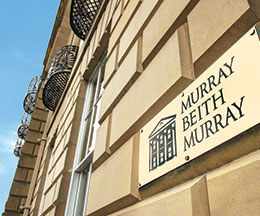Murray Beith Murray LLP is a leading Scottish private client law firm.
For 175 years we have specialised in meeting the legal, financial and administrative needs of individuals and families, family trusts, charities and private companies.
Murray Beith Murray LLP is a leading Scottish private client law firm.
For 175 years we have specialised in meeting the legal, financial and administrative needs of individuals and families, family trusts, charities and private companies.

Recent reports have highlighted that inheritance tax receipts continue to grow despite the introduction of the new residence nil rate band. Inheritance tax receipts reached an astounding high of £5.2 billion in the last tax year. This is an 8 per cent increase compared to the £4.8 billion total that was reported in the previous tax year of 2016-17.
Considering that we now have an additional inheritance tax allowance specifically for our main residence, it makes sense to consider what is prompting the increase.
This blog will explore some of the potential reasons that HM Revenue & Customs continues to process vast sums of inheritance tax and will look at some ways to ensure you are doing all that you can to manage your inheritance tax liability.
As from April 2017, spouses and civil partners each have an additional nil rate band appointed to their main residence only, known as the residence nil rate band (RNRB). This is available when residential property is left to direct descendants. Direct descendants include children, adopted children and step-children but do not include nieces and nephews and other close family members.
The RNRB currently stands at £125,000 and will increase by £25,000 each year until it reaches £175,000 in April 2020. Just like the standard nil rate band, any unused RNRB on the first death of a married couple or civil partners has the potential to be transferable even if the first death occurred before 6 April 2017. This relief is, however, capped if a person’s gross estate exceeds £2 million.
Solicitors will be the first to admit that the RNRB can be complicated to implement. It is therefore not entirely surprising that there may have been a low take up of the RNRB. Perhaps this is due to lack of awareness of the reliefs available. Many do not realise the importance of seeking tailored advice from a solicitor in relation to their assets and estate planning measures that could be taken to limit inheritance tax.
Rising house prices throughout the UK are steadily bringing people over the nil rate band threshold and leading to an increase to those who have a potential inheritance tax liability.
One of the simplest but perhaps overlooked ways of managing your inheritance tax bill includes making gifts. “Potentially exempt transfers” are lifetime gifts to individuals that do not attract immediate inheritance tax. Provided the person making the gift survives for 7 years from the date of gift and retains no benefit in the gifted asset, the transfer will fall out of account completely for inheritance tax purposes.
There is also an annual exemption given to everyone of £3,000 for inheritance tax purposes. This can be carried forward for up to oneyear if it is unused.
The best way you can make the most out of what you have is to seek tailored legal advice to find estate planning techniques that are suitable for you. If this blog has raised any questions, please get in touch using the Enquiry Form or call us now on the number below.
For more information and advice on inheritance tax, call 0131 225 1200 and contact us today.
